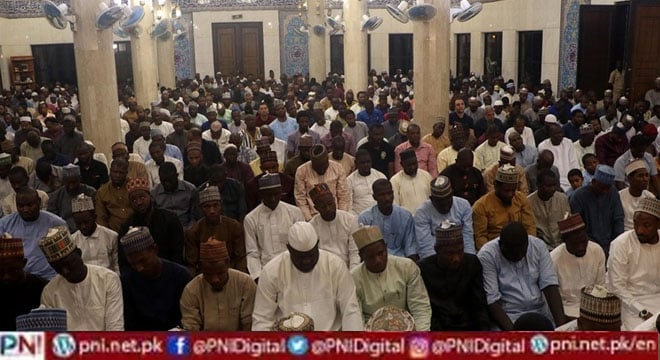MAIDUGURI, Nigeria, Mar 26 (AA/APP): The shortage of naira notes the currency of Nigeria is affecting access to food and other items for displaced people observing Ramadan in the northeast of the West African country, many affected people told Anadolu.
Adam Saleh, who lives in Madinatu camp for internally displaced people in northeastern Maiduguri, said his family of five began Ramadan worrying about what they could eat.
“As a Muslim, I consider everything a providence of God, but this year we were so afraid before the beginning of the fasting month,” he said.
Saleh said his fears were due to a lack of money to buy grain and other essentials to prepare local delicacies before the holy month.
The government’s economic policies, which introduced new naira notes in December 2022, led to a shortage of cash in circulation and exacerbated tensions.
Saleh said he has no bank account and has abandoned his firewood business because customers stopped buying due to the cash shortage.
His neighbor Habib Modu, 47, recounted a similar experience. He said it was the first time in 10 years that he spent the holy month without sufficient food.
“This is the first time since 2015 that we are experiencing this. Alhamdulillah. We continue with Ramadan,” he said.
Some also said they rely on donations from generous people to observe fast.
“Some gave us food, but we also need money to buy some essentials,” said Hajara Muhammad, who has seven children.
An official, who was not authorized to speak about camp management, said there were more than 20,000 displaced people in three camps in the region.
According to a report from the UN, nearly 3 million people were forced to seek refuge in IDP camps in safer areas after fleeing their homes following terrorist attacks in the volatile northeast region.
More than half of the displaced population has returned to their homes and been resettled in communities by the Borno state government.
Nigerians also complain about the high cost of food and basic necessities.
Tajudeen Idowu, a bus driver in the commercial metropolis of Lagos, said he is spending twice as much this year as in previous years to prepare for Ramadan.
“The cost of living and food prices are high. Last year, I spent 60,000 naire notes ($80) to buy food and other things for my family. This year, with 40,000 naire notes ($200), I could not buy all the things I used to buy before Ramadan started,” he said.
Follow the PNI Facebook page for the latest news and updates.









